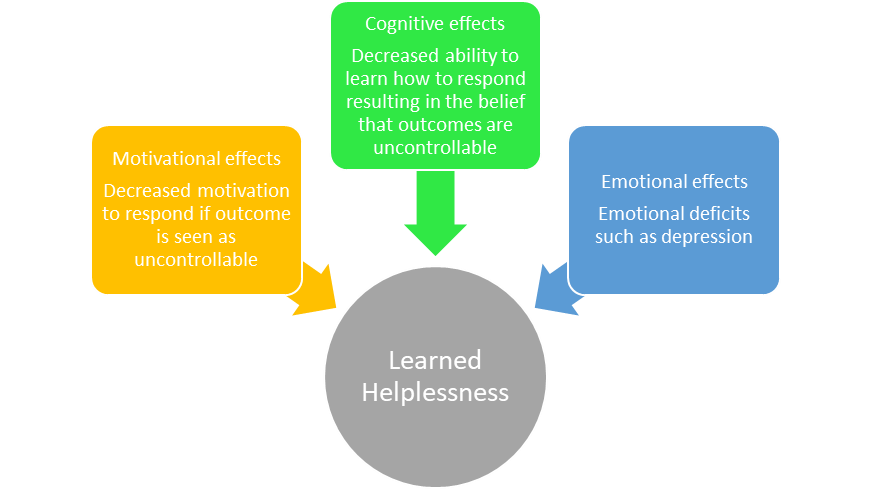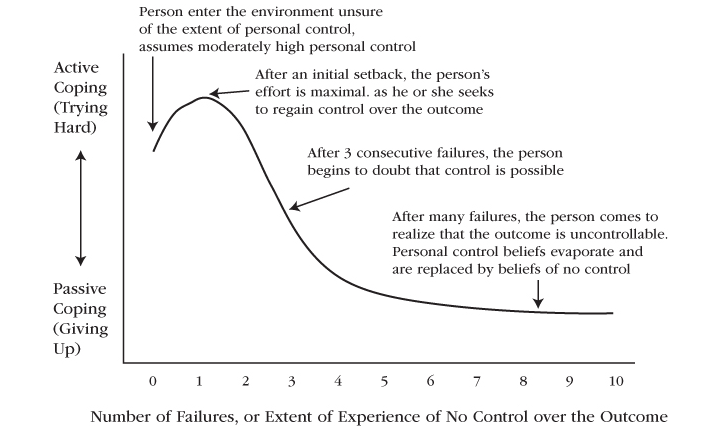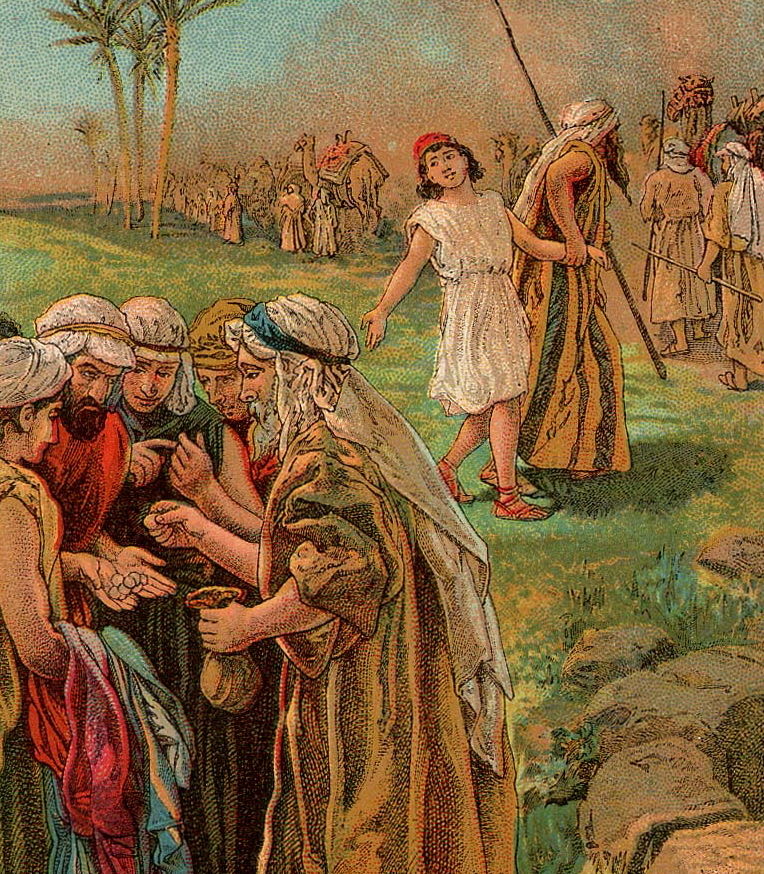• This chapter will talk about how we can be programmed or program ourselves to fail moving forward
1. Introduction 2. The World Is A Battlefield 3. The Church: A Feast for Oppressors? 4. How Did We Become Victims? 5. How do victims communicate? 6. Being a victim of an offense and victimhood 7. Learned Helplessness 8. Victim-blaming 9. God’s solution to sin 10. How Satan uses the Bible to force us to submit to him 11. The Good Shepherd 12. Victimhood as a weapon 13. The Victorious Christian 14. Practical exercise towards freedom. 15. Restore your trust in God. 16. Why God allows difficulties. 17. Church Tribulations 18. Final Victory 19. Afterword
Countless studies have looked at the phenomenon of “learned helplessness”. This is seen in both animals and humans. When subjected over time to obstacles that they cannot escape or solve, they come to a state where it seems hopeless, and they accept and succumb to their situation. Countless kidnapping situations show that some kidnapped people who have a chance at escape often don’t take it because they are so broken down and don’t think it is possible, even when the opportunity presents itself. Similarly, children are always powerless in a grown-up world and can do little to save themselves from neglect and verbal and physical abuse. Once grown and able to defend themselves, they still don’t because of “learned helplessness”. This continues into their lives, and they struggle to complete even smaller tasks. They don’t choose victimhood; they have been coached into this state. It does not mean there is no way of escape; it only means they need help to see it. Their self-confidence is broken, and they are controlled by fear and hopelessness.
Learned helplessness has been experimented with in many ways, especially among students. Even those with no specific trauma are easily manipulated into this state. Some tests give impossible questions to one part of the class and solvable questions to the other. Just seeing the other finish easily while they struggled brought about this phenomenon, and they scored more poorly on the problems they got that they could solve. Other tests have been conducted where students were given really hard assignments before easy ones, compared to the easy ones before the hard ones. Overall, those who got the hard ones first had a lower score on the easy ones than those who got the easy ones first. Learned helplessness is not something that happens to less intelligent people; if manipulated, practically all people would be affected by it. These are just a few examples of healthy individuals being manipulated to lose courage or self-esteem. Now consider someone who, throughout their childhood, has been repeatedly taught that they are trapped and cannot help or solve their problems. Many will struggle in all aspects of life.

Although learned helplessness as a trauma response has always existed because of sin, it was psychologists Martin Seligman and Steven F Maier who created the term ’learned helplessness’ after several studies and experiments. Dogs were repeatedly getting an electrical shock after hearing a tone, yet they had no way of escaping. When they were later placed in a shuttle box that contained two chambers separated by a low barrier, and they had a means to escape, they did not even try to attempt it. Their previous lesson that they could not escape or save themselves made them unable to see a solution when there was one. The dogs no longer had confidence in their perceptions. They furthered the study and created three groups with dogs. The first two were given “hope” by how the experiment was carried out. The third group was completely helpless, and the shock came randomly and apparently out of their control. The first two groups escaped the shocks; the third group did not even try. From this, they learned how the dogs in the third group developed a cognitive expectation that nothing they did could prevent the shocks, and so they did not even try. They were overpowered by what happened, unlike the other two groups.(Seligman ME. Learned helplessness. Annu Rev Med. 1972;23:407-12. doi:10.1146/annurev.me.23.020172.002203 )
It is the same with people. They cannot just “snap out of it”. They need to train their brains or be helped to understand and find the courage to change. Furthermore, they need to believe it is possible. Some need cognitive therapy.

Our intellect can work against us. Learning through a long-term abusive or toxic situation with no way of escaping, the brain fools us into thinking we have to depend on others to get help. This help might never come, and so many get trapped with no self-esteem or self-efficacy to manage obstacles or even their lives.
A very damaging situation is when the abuser is also the caregiver and the victim is dependent on the abuser for necessity, safety, and nutrition. Their safety is also their destroyer. It could make the strongest weak. It can also create “learned helplessness”.
God knows how one person’s sin can entirely ruin someone’s life. Because the lines of right and wrong have become so blurred, understanding the situation can take years. Often, someone in that situation will continue to suffer abuse from others. Many lose their minds. Most dissociative disorders, which are growing rapidly in society, are ways victims learn to escape with their minds what they cannot escape with their bodies. Or they have learned helplessness, and their coping is dissociating.
Humans are created to be free, and freedom is sometimes the last thing our nature will give up on. When the body can’t escape, the mind will try to. A myriad of different mental disorders follow trauma. Our bodies were not created for a world of sin.
As sin increases in the world, we will have more and more young adults and adults with different types of issues and dissociation, and low self-esteem has a large part in it. All issues create more tension, more strife, and more hurt. Consider all the previously mentioned diseases caused by long-term stress as well.
Sin destroys mankind’s mind, heart, and soul, which is why God hates it. He has seen the whole picture this whole time. All the causes and effects, all the repetition. He wants to remove what is damaging His creation, “reset” our genetics, and give mankind a better state free of repeating the patterns. This is part of the point of heaven and the new earth. When sin is removed, the suffering ends. It is also why God asks men to repent and “turn from their ways” to get access. Moving from earth to heaven will not solve any problems unless people are willing to give up their sins. If not, suffering has just moved to a new place. (Ezek.18; Matt.5:20; Joh.3; Isaiah 26:10)
For a long time only, physical damage has been considered because science had not discovered how much illness trauma really causes, but now we know.
Sin is destructive; it destroys life inside a human. It destroys our society, our children, and ourselves. The price of self-gratification and self-protection is very high.
There is no doubt that the world is full of victims who are hurting. And pretending it is not the case does not make the damage go away; rather, it further complicates things. You will never command a newborn to get up and walk because you know its body is not ready for it. Although it has a back, and two legs, and seems to have all the body parts needed, it is not strong enough.
Demanding someone to snap out of victimhood will most likely only push them further into it. Compassion and understanding, along with helping them see that leaving victimhood does not change the fact that they were a victim, would be much more helpful.
Getting trapped in victimhood for some is not by choice. Still, their recovery is dependent on breaking free from it. God wants us to have the freedom of choice, but if someone is mentally ill, they don’t know how to use that freedom; they fear freedom, and they fear having to make choices. This is part of being stuck in learned helplessness.
No case is lost to God, and no case is hopeless. There is no one cure for all. Some are more damaged than others. It does not necessarily depend on what has happened to you, but on how you were able to cope and deal with it and the support system you had. A woman who is claiming victimhood to control her surroundings and get attention is in a different class than someone who has been brainwashed into submission and doesn’t know any other way of communicating a need for help. No case is the same, and no case should be treated the same. Everyone’s story is unique, even though some may manifest similar symptoms.
The important thing is to understand that God desires our freedom. He can and will help if we ask Him. No one who is truly a victim should desire victimhood. The only ones who gain from claiming victimhood are the abusers, or victims who become abusers, who use it to manipulate their surroundings. For a victim, the state of real victimhood leaves them vulnerable to new abuse and is not desirable.
The Example of Joseph
The biblical Joseph is a good example of someone who should have been more mentally impaired. He had a good upbringing but lost his mother at a young age, was often bullied by his brothers, was eventually harmed and almost killed by them, and was then sold into slavery. He was only 17 at the time. This is a very traumatic situation that continued for years without loving family members there to help him cope with his new situation. He did not have closure or justice, and he knew his brothers probably lived peacefully and freely with their father while he was still suffering. Being a slave and having lost his freedom, he did not give up his situation. Instead, he made the best of every situation he was in, standing up for himself even if he had to face the consequences of that. When Potiphar’s wife wished to sleep with him, he could have felt forced to do what she said, yet he took charge of his own decisions and said no anyway. He did not make his situation as her slave his excuse. Even in prison, still captivated by his situation, he focused on the decisions he could make and did his best to find self-growth where he could. He did not let them take his belief, his identity, or his self-efficacy. In the end, he was fit to be the leader of Egypt and did a good job at it. He was traumatized and forced to submit as a slave, yet he came out of it. God placed a long-term trauma victim in an important position. Although he was a victim, he refused to continue to be one. He did not choose victimhood. And when his brothers came to Egypt to buy grain during a famine, he did not just give them a new chance right there and then, as many Christians do with their abusers. Rather, he took charge of the situation to test them and see whether they had changed or not. Rather than letting them push him around again, he showed them he was in control.
Joseph’s story is the opposite of learned helplessness; it is a success story from experiencing trauma to living his best life. Joseph mastered his difficulties by seeking emotional and physical support from God. As a result, he was never completely helpless in any situation; he always felt someone stronger was there with him. Instead of using dissociation to survive, he found emotional support in God. He knew God could at one point help him out of the situation, and that gave him the hope he needed to not give up. The loss of hope is usually what creates learned helplessness. Joseph could help himself by upholding this relationship with God and by constantly experiencing little and great answers to prayers. These two things helped him stay sane, and rather than staying a victim, he became a leader.
When naming his first son as a free man, the Bible says: “And Joseph called the name of the firstborn Manasseh: For God, said he, hath made me forget all my toil, and all my father’s house” (Gen 41:51) Joseph recognized his affliction but refused to let it get the better of him. Despite saying that he forgot his toil, we know that when his brethren came, the pain was still in his memory and resurfaced, as it does with many trauma victims. Not because he wanted to harm them, but to protect himself and others, he took precautions. When he saw they had changed and regretted their actions, he chose to forgive them and give them another chance. However, in Joseph’s situation, he did not forgive them and then went to tend the sheep with them in the fields of Canaan once again. Joseph was in a superior situation and remained so. He was safe.
For many, forgiveness means repeatedly placing themselves in the same harmful situation. Especially Christians do, but we can forgive others and protect ourselves at the same time. Forgiveness should not be synonymous with submission to the abusers. If the situation is the same, offenses often repeat. Forgiving does not take away the need to get out of a destructive life situation, which is a necessity for some if they are to not be abused again and have the opportunity to heal.
The story of Joseph shows the power of faith in God to help a victim remain in control in a hopeless situation. Biblically speaking, it shows how, when all other support systems fail, having God as a support system is enough. If faith is strong, hope is strong, and we will never be completely overpowered. This is the blessing a Christian has.
“And God is faithful; he will not let you be tempted beyond what you can bear. But when you are tempted, he will also provide a way out so that you can endure it” (1.Cor.10:13)
When King David went through some of the worst moments in his life on the run from King Saul, he found shelter with God. Although his situation seemed impossible to resolve, the hope of a righteous God in charge kept him strong when he was at his weakest. David even had to seek refuge with his other enemies, and he had little peace in his world at the time. Always worried about getting caught. Because of God, David did not give up.
When Elijah felt that he had no one on his side left, God came and spoke to him directly at Mount Sinai. When the three men, Hananiah, Mishael, and Azariah were cast into the furnace for being the only ones to choose faithfulness to God among a large crowd, Christ Himself came and stood there with them.
Those who take refuge with God have a support system unless their relationship with God is a self-invented toxic role play. For a Christian, what is part of the solution can, if distorted, also enhance the problem. This is why many victims reject God as a helper and leave their faith, while others find healing through their relationship with God.
A Christian is never helpless or hopeless.“For while we were still helpless, at the right time Christ died for the ungodly” (Rom.5:6) “In my distress I called upon the Lord,And cried to my God for help; He heard my voice out of His temple, And my cry for help before Him came into His ears” (Psalm 18:6)



